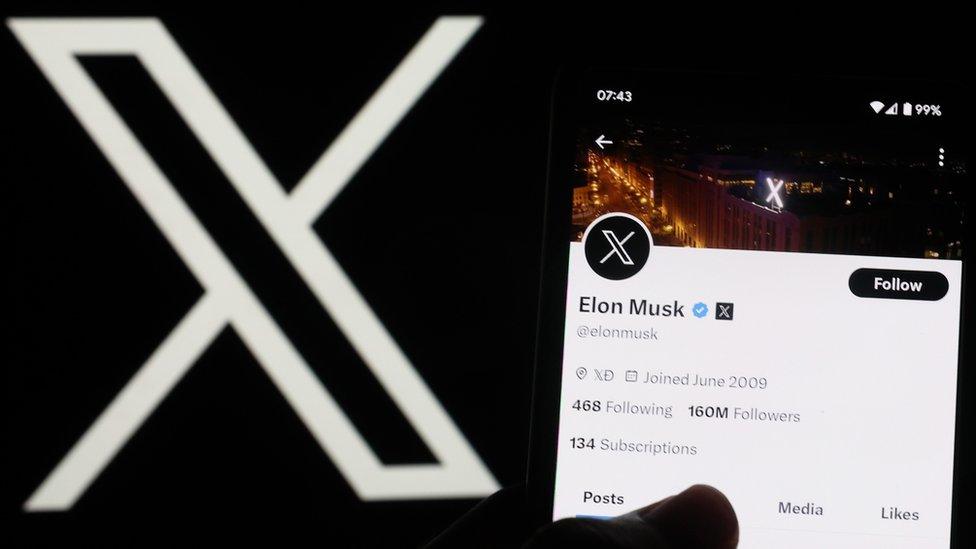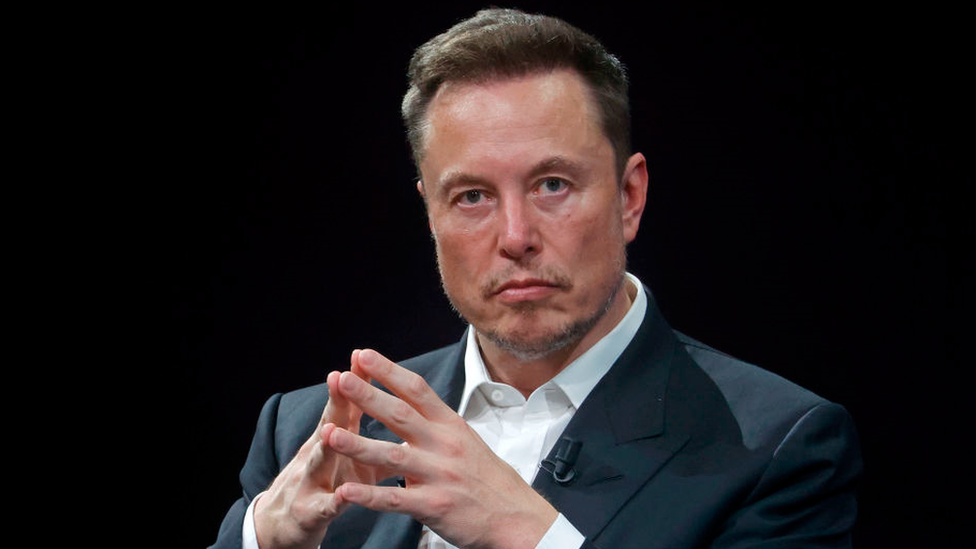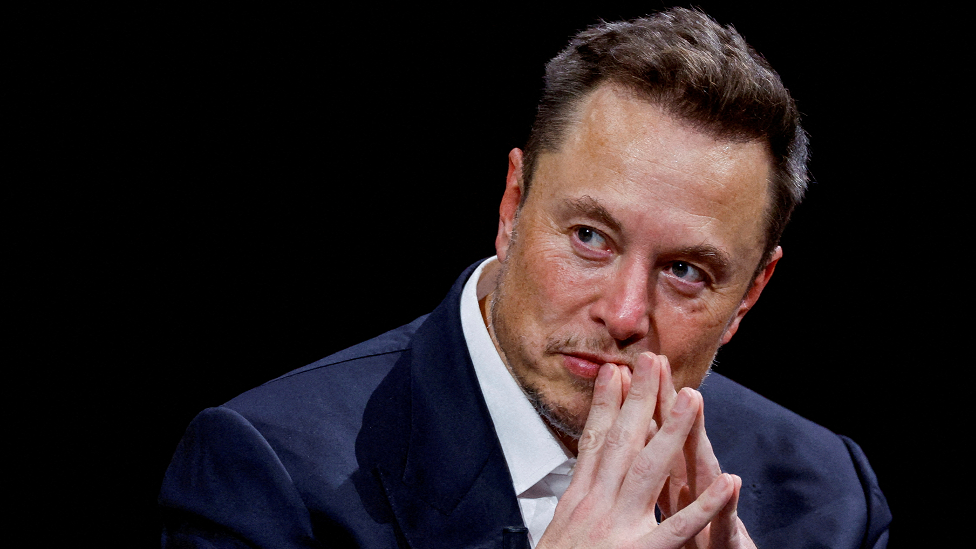X begins charging new users $1 a year in New Zealand, Philippines
- Published

Elon Musk's X, formerly known as Twitter, has started charging, external new users in New Zealand and the Philippines $1 (£0.82) a year to access key features, as part of a new trial.
They include the ability to tweet, retweet, like posts and reply to posts.
Those who opt out of the subscription fee will only be able to read posts, watch videos and follow accounts.
The social media platform said that the aim is to "reduce spam, manipulation of our platform and bot activity".
New accounts will also be required to verify their phone number, though Mr Musk has said, external that it will still be free to create "read only" accounts, which do not have key features. .
Last month, the boss of X, Tesla and SpaceX suggested that all X users may have to pay for access.
Since Mr Musk bought Twitter for $44bn last year, it has seen a continuous revenue decline.
While there is a clear financial interest for the company to charge users, the controversial billionaire has said that getting people to pay for the service is aimed at tackling bots.
He has previously said that a bot costs "a fraction of a penny" to make. "But if somebody even has to pay a few dollars or something, some minor amount, the effective cost to bots is very high".
Paid subscribers of an enhanced service, called X Premium, now pay for more features like longer posts and increased visibility on the platform.
X Premium currently costs $8 a month in the US. The price differs depending on which country a subscriber resides in, while other users can still use X for free.
One risk of putting X behind a paywall is that the platform may lose a large chunk of its users. That in turn, could drive down advertising revenue, which currently accounts for the vast majority of the company's income.
In recent weeks, the company has been investigated by the European Union for the possible spread of terrorist and violent content and hate speech, after Hamas's attack on Israel.
It has also been fined by Australia's internet safety watchdog for failing to cooperate with a probe into anti-child abuse practices.
- Published19 September 2023

- Published13 October 2023
